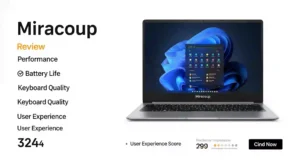In the realm of government contracting and small business administration, the case of Cask Technologies LLC vs. SBA has drawn significant attention. Understanding the implications of this case is crucial for those interested in government contracts, business regulations, and legal precedents affecting small and medium-sized enterprises (SMEs). This blog post aims to explain the details, background, and impact of the case in straightforward terms.
Introduction to the Parties Involved
Cask Technologies LLC
Cask Technologies LLC is a privately owned company that provides consulting services primarily focused on federal and commercial clients. Their expertise spans across technology implementation, business transformation, and IT strategy, making them a notable player in the consulting industry. Established with a vision to support business growth and technological advancement, Cask Technologies has worked with various government entities, helping them enhance their operational efficiency and effectiveness.

Small Business Administration (SBA)
The Small Business Administration (SBA) is a U.S. government agency designed to assist and protect the interests of small businesses. The SBA offers various programs including loans, grants, and contracts, along with counseling and educational programs aimed at fostering entrepreneurship and promoting economic development.
Background of the Case
The case between Cask Technologies LLC and the SBA revolves around eligibility and compliance with the SBA’s regulations and guidelines. It addresses issues concerning the certification process for small business contracting programs and whether Cask Technologies LLC was properly certified to compete for certain federal contracts.
The case arose from a dispute regarding the size and ownership criteria set by the SBA, which are crucial for determining a company’s eligibility for its programs. Cask Technologies LLC faced challenges in proving that they met these criteria, prompting a legal confrontation with the SBA.
Overview of the SBA
To fully grasp the intricacies of this case, it’s essential to understand the role and function of the SBA:
- SBA’s Mission and Objectives: The SBA was established in 1953 to aid, counsel, assist, and protect the interests of small businesses in the U.S., ensuring they have the necessary support to thrive in the competitive market.
- Programs and Services: The agency provides an array of services, including:
- Financial Assistance: Offering loans and grants to help businesses start and expand.
- Contracting Support: Assisting small businesses in obtaining government contracts.
- Training and Counseling: Providing educational resources and mentorship programs.
- Advocacy: Representing the interests of small businesses within the federal government.
- Certification and Eligibility Criteria: For businesses to qualify for SBA programs, they must meet certain criteria such as size standards, ownership, and operational capacity. These requirements ensure that only genuinely small businesses benefit from the SBA’s support.
Core Issues in the Case
The primary issues in the Cask Technologies LLC vs. SBA case include:
- Eligibility Criteria: The dispute centered on whether Cask Technologies LLC met the necessary size and ownership standards to qualify as a small business under the SBA’s rules.
- Certification Process: Certification involves thoroughly reviewing a company’s financial and operational status. Cask Technologies LLC argued that the SBA’s evaluation was flawed and did not accurately reflect their eligibility.
- Compliance with Regulations: The case also delved into whether Cask Technologies LLC complied with all the regulations and guidelines stipulated by the SBA for participation in federal contracting programs.
Legal Proceedings and Timeline
Initial Filing and Arguments
- Initial Complaint: Cask Technologies LLC filed a complaint against the SBA, claiming that the agency’s decision to disqualify them from certain programs was unjust and based on incorrect interpretations of the rules.
- SBA’s Defense: The SBA defended its decision by presenting evidence and arguments supporting its evaluation and interpretation of the eligibility criteria.
Court Hearings and Deliberations
- Hearings: The court held several hearings where both parties presented their arguments. The focus was on examining the processes and methods used by the SBA in their decision-making.
- Deliberations: After the hearings, the court took time to deliberate on the case, considering both sides’ evidence and arguments.
Court’s Decision and Rationale
The court ultimately ruled in favor of the SBA, upholding their decision to disqualify Cask Technologies LLC from the contested programs. The key points of the court’s rationale included:
- Adherence to Guidelines: The court found that the SBA had followed its established guidelines and procedures in evaluating Cask Technologies LLC’s eligibility.
- Interpretation of Regulations: The court agreed with the SBA’s interpretation of the regulations, stating that their decision was based on a reasonable and consistent application of the rules.
- Evidence and Documentation: The court noted that the evidence provided by the SBA was comprehensive and adequately supported their decision to disqualify Cask Technologies LLC.
Implications for Small Businesses
The outcome of this case has significant implications for small businesses seeking to participate in federal contracting programs:
- Importance of Compliance: The case highlights the importance of strict compliance with SBA regulations and guidelines. Small businesses must ensure they meet all the eligibility criteria before applying for SBA programs.
- Thorough Documentation: Businesses must maintain thorough documentation of their financial and operational status to support their eligibility claims. This includes keeping accurate records and providing complete information during the certification process.
- Understanding SBA’s Rules: Small businesses must have a clear understanding of the SBA’s rules and regulations. This knowledge can help them navigate the certification process more effectively and avoid potential disqualification.
Lessons Learned from the Case
The Cask Technologies LLC vs. SBA case offers several valuable lessons for small businesses and aspiring entrepreneurs:
- Be Proactive in Compliance: Small businesses should be proactive in ensuring they comply with all the regulations and standards set by the SBA. This includes regular reviews of their financial and operational status to ensure ongoing compliance.
- Seek Expert Advice: Navigating the complexities of SBA regulations can be challenging. Small businesses may benefit from seeking expert advice or consulting with legal and financial professionals to ensure they meet all the requirements.
- Stay Informed: The business landscape and regulatory environment are constantly evolving. Small businesses should stay informed about any changes to SBA rules or guidelines that may affect their eligibility for programs.
Future Outlook and Conclusion
The Cask Technologies LLC vs. SBA case serves as a reminder of the critical role that regulations and compliance play in the world of government contracting. For small businesses looking to engage in federal contracts, understanding and adhering to SBA’s rules is essential for success.
As the SBA continues to support and advocate for small businesses, they will likely refine and update their guidelines to better serve the needs of the business community. Small businesses should remain vigilant and proactive in their efforts to comply with these guidelines, ensuring they can take full advantage of the opportunities offered by the SBA.
In conclusion, the case of Cask Technologies LLC vs. SBA underscores the importance of compliance, documentation, and understanding of the regulatory framework. By learning from this case, small businesses can better position themselves for success in the competitive world of government contracting.
For more content, visit dailymarketforbes.
FAQs on Cask Technologies LLC vs. SBA
Q1: What was the main issue in the Cask Technologies LLC vs. SBA case?
A1: The main issue was whether Cask Technologies LLC met the SBA’s eligibility criteria for certain federal contracting programs, specifically regarding their size and ownership standards.
Q2: Why is compliance with SBA regulations important for small businesses?
A2: Compliance with SBA regulations is crucial for small businesses because it determines their eligibility for various SBA programs, including loans, grants, and contracts. Non-compliance can lead to disqualification and missed opportunities.
Q3: How can small businesses ensure they comply with SBA’s rules?
A3: Small businesses can ensure compliance by regularly reviewing their financial and operational status, maintaining thorough documentation, seeking expert advice, and staying informed about any changes to SBA regulations.
Q4: What can small businesses learn from the Cask Technologies LLC vs. SBA case?
A4: Small businesses can learn the importance of proactive compliance, the value of expert advice, and the need to stay informed about regulatory changes. These lessons can help them navigate the SBA’s programs more effectively.
Q5: What is the future outlook for small businesses in government contracting?
A5: The future outlook for small businesses in government contracting is promising, provided they adhere to SBA’s guidelines and actively engage in compliance efforts. As the SBA continues to refine its programs, small businesses can expect more opportunities to participate in federal contracts.












Be First to Comment